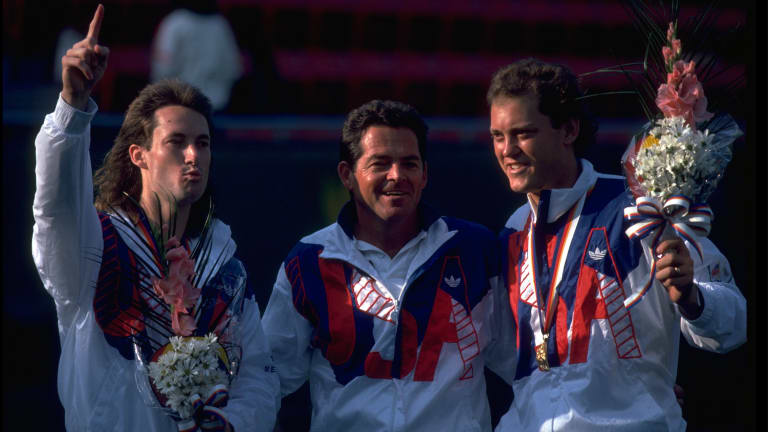Former world No. 1 Ken Flach’s widow gives added meaning to his life
By Sep 18, 2019Madrid, Spain
Reigning Madrid champ Andrey Rublev gets walkover from Gael Monfils; 2024 finalist Auger-Aliassime out
By Apr 25, 2025Madrid, Spain
Diana Shnaider vs. Anastasija Sevastova: Where to Watch, Madrid Preview, Betting Odds
By Apr 25, 2025Madrid, Spain
Novak Djokovic vs. Matteo Arnaldi: Where to Watch, Madrid Preview, Betting Odds
By Apr 25, 2025Madrid, Spain
Joao Fonseca vs. Tommy Paul: Where to Watch, Madrid Preview, Betting Odds
By Apr 25, 2025Social
Jannik Sinner on his comeback: “It won’t be easy”
By Apr 25, 2025WTA 125K Saint-Malo, France
After first-round Madrid loss, Naomi Osaka takes wild card to WTA 125 in France
By Apr 25, 2025Pick of the Day
Madrid Open Betting Preview: Mariano Navone vs. Ben Shelton
By Apr 25, 2025Madrid, Spain
Elena Rybakina vs. Bianca Andreescu: Where to Watch, Madrid Open Betting Odds
By Apr 25, 2025Madrid, Spain
Holger Rune vs. Flavio Cobolli: Where to Watch, Madrid Open Betting Odds
By Apr 25, 2025Former world No. 1 Ken Flach’s widow gives added meaning to his life
The four-time Grand Slam doubles—and two-time mixed doubles—champion passed away 18 months ago at the age of 54, losing a brief battle with sepsis.
Published Sep 18, 2019
Advertising

Former world No. 1 Ken Flach’s widow gives added meaning to his life
Advertising

Former world No. 1 Ken Flach’s widow gives added meaning to his life
© 2008 Getty Images
Advertising

Former world No. 1 Ken Flach’s widow gives added meaning to his life
© Getty Images
Advertising

Former world No. 1 Ken Flach’s widow gives added meaning to his life
© Getty Images
Advertising

Former world No. 1 Ken Flach’s widow gives added meaning to his life